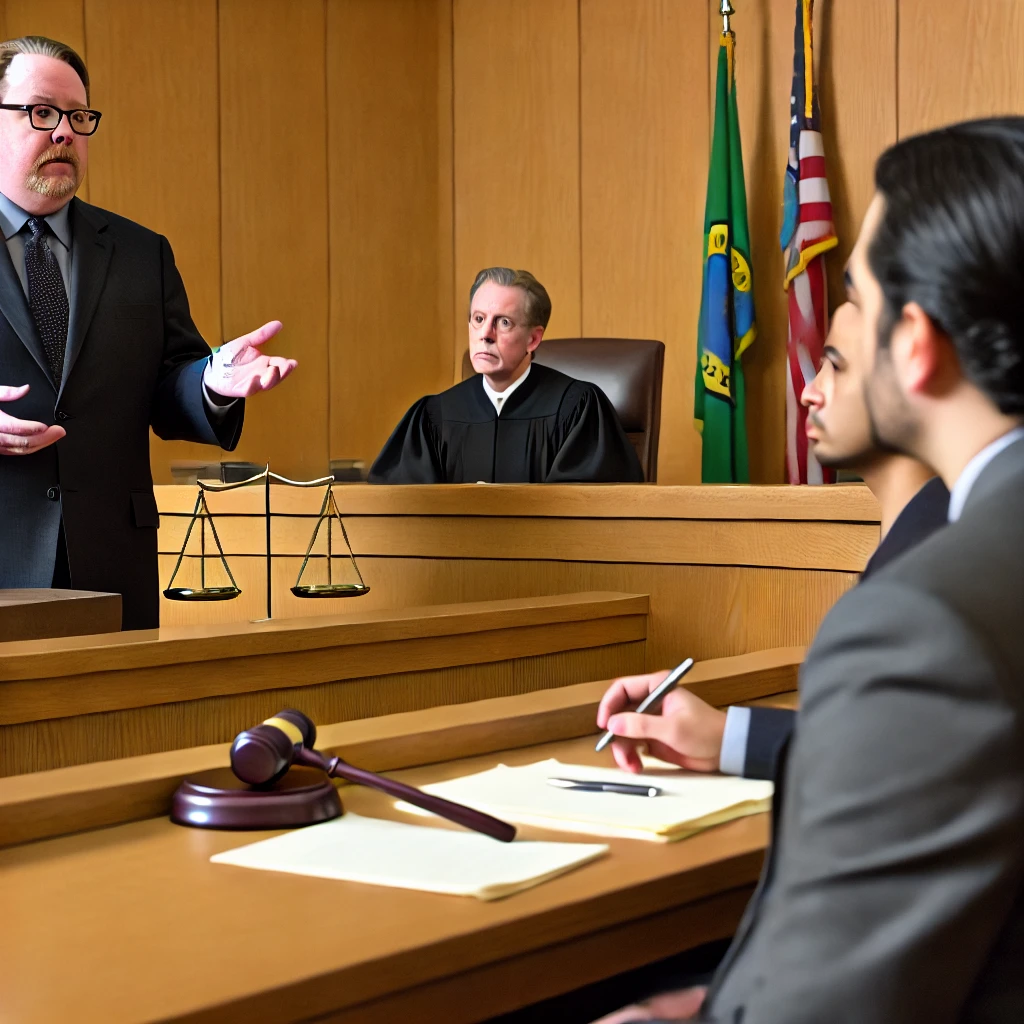In Washington law, ER 701 addresses the circumstances under which lay witnesses can provide opinion testimony in court. The rule sets clear boundaries to ensure that such testimony is both relevant and reliable. This article explores the key elements of ER 701, its implications for legal proceedings, and its practical application in Washington courts.
What is ER 701?
ER 701 pertains to opinion testimony by lay witnesses—individuals who are not testifying as experts. According to this rule, a lay witness’s testimony in the form of opinions or inferences is restricted to those opinions or inferences that are:
- Rationally based on the perception of the witness: The opinion must be grounded in what the witness has directly observed or experienced.
- Helpful to a clear understanding of the witness’s testimony or the determination of a fact in issue: The opinion should aid the jury or judge in comprehending the witness’s account or resolving a specific factual question.
- Not based on scientific, technical, or other specialized knowledge within the scope of ER 702: The opinion should not require specialized expertise, which is reserved for expert witnesses.
Practical Application in Court
In practice, ER 701 ensures that lay witnesses provide testimony that is both useful and grounded in their direct experiences, without encroaching on the territory of expert witnesses. For example:
- Witnessing a Car Accident: A lay witness might testify, “The car was speeding before the crash,” based on their perception. However, they cannot testify about the precise speed unless they have specialized training or knowledge.
- Behavior Observations: A lay witness might say, “He seemed angry,” if the observation is based on visible behavior such as shouting or gesticulating, which a typical person could interpret similarly.
Importance of ER 701
ER 701 is crucial for maintaining the integrity and clarity of legal proceedings. It ensures that lay witness opinions are admissible only when they contribute meaningfully to understanding the facts at issue, without overstepping into areas that require expert analysis. This distinction helps prevent confusion and maintains the evidentiary standards necessary for fair trials.
Conclusion
ER 701 plays a vital role in Washington legal proceedings by delineating the scope of opinion testimony by lay witnesses. It ensures that such testimony is based on direct perceptions and is helpful to the court while safeguarding the specialized domain of expert witnesses. Understanding and adhering to ER 701 is essential for legal practitioners to effectively present and challenge evidence in court.
You can read the text of ER 701 here: https://www.courts.wa.gov/court_rules/pdf/ER/GA_ER_07_01_00.pdf
Review our client resources here
Contact us anytime for your urgent legal needs.
About Blanford Law:
We are no-nonsense, relentless, fair, and honest. We are great listeners instead of fast talkers, that is just who we are. More than 20 years ago, Ken began practicing law with a deeply-seeded belief that every person has the right to the best legal representation available. He built his law firm on that belief. Another belief that he strongly adheres to is his fundamental belief that clients deserve respect, with no assumptions or preconceived notions. If you or someone you know is accused of a crime or injured as a result of the negligence of another, please have them call us at 253-720-9304 or email us info@blanfordlaw.com
Additional Legal Resources: Expert Testimony, Hearsay Rules, and Personal Injury Law in Washington
Explore these in-depth legal articles covering expert testimony, evidence rules, personal injury claims, and business litigation to stay informed about your rights under Washington State law.
Washington Evidence Rules & Expert Testimony
📊 Understanding ER 703: Bases of Opinion Testimony by Experts in Washington
What evidence can an expert rely on in court? ER 703 explains the standards for expert opinion testimony in Washington trials.
⚖️ Understanding ER 704: Opinion on the Ultimate Issue in Washington
Can an expert testify about the ultimate legal issue in a case? Learn the limitations under ER 704 and how it applies in Washington courts.
📄 Understanding ER 705: Disclosure of Facts or Data Underlying Expert Opinion
Do experts need to disclose their underlying facts before giving an opinion? ER 705 outlines when such disclosure is required in Washington trials.
🗣️ Understanding ER 702: Testimony by Experts in Washington State
Who qualifies as an expert witness in Washington? ER 702 sets the standard for when expert testimony is admissible in court.
🔎 Exploring Washington ER 602: The Essential Guide to Personal Knowledge in Court Testimony
Witnesses must have firsthand knowledge of an event before testifying. Learn how ER 602 affects trial testimony in Washington courts.
For more legal insights or assistance with your case, contact Blanford Law at 253-720-9304, info@blanfordlaw.com, or visit www.blanfordlaw.com.

